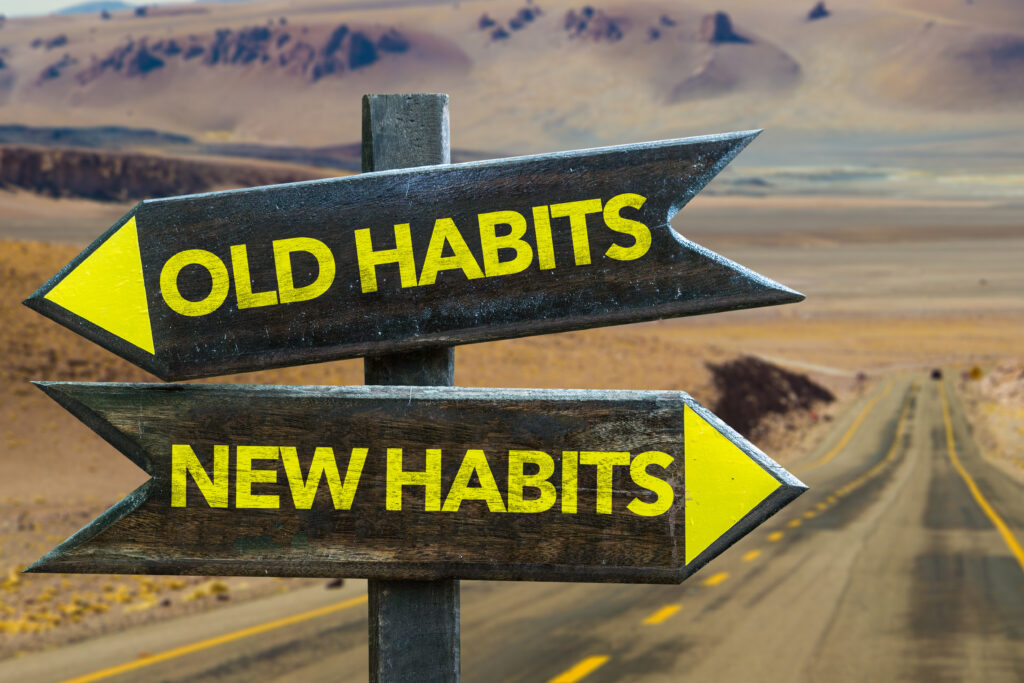

Columns/Blogs
Mental Health
Mental fitness habit, or none – that is the question
April 24, 2023
By
Bill Howatt
 Photo: Adobe Stock
Photo: Adobe Stock Developing knowledge and skills by exploring micro-skills (e.g., journalling) and their benefit for emotional well-being can be helpful for mental fitness. But information like this will do little for your mental health unless you develop habits you do daily or on-demand when you need tools to cope with a life challenge.
Good mental health requires habits that facilitate positive emotions or help you get through challenging moments. Positive emotions are the result of favourable brain chemistry that creates neurochemicals. The percentage of time we spend in unpleasant versus pleasant emotions (i.e., languishing versus flourishing) impacts our emotional well-being.
It is impossible always to be positive and happy. Expecting otherwise results in disappointment and frustration.
What is the difference between mental fitness and resiliency? Resiliency is about developing knowledge and skills that allow a person to bounce back from setbacks. We build resiliency through education, experiences, and the environment. Combining these three Es influences our confidence to deal with adversity and life challenges.
Resiliency is an on-demand skill. We typically tap into our resiliency habits to cope with life, keep us grounded to put the pieces together after a setback or disappointment, or navigate a life stressor. Some define resiliency as how fast you bounce back from a setback.
Mental fitness is about developing habits to positively impact your brain chemistry to learn how to spend more time in pleasant emotions and make unpleasant emotions more tolerable. There is no escaping life’s challenges and unpleasant emotions. They are a part of the human experience. You know you have good emotional well-being when you can live well when feeling unwell.
A personal mental fitness plan allows you to gain knowledge and skills and engage in activities that support the four dimensions of body, emotions, thinking, and feelings. The more positive habits you develop in each dimension, the more likely you are on the road to emotional well-being that mitigates your risk of mental illness or allows you to live well with a mental illness.
How long does it take to move from a goal to a habit?
The answer is, “As long as it takes.” Learning to meditate took me about nine months. I thought it would have gone much faster, but the 21-day rule is a myth or at least an over-generalization. I knew that this practice was good for me and would train my mind to slow down and allow space to just be.
Research has shown that it typically takes 18 to 254 days to form a habit and an average of 66 days for a new behaviour to become automatic. When asked how long, I typically say, “260 days.” Developing a habit that you will value requires a system, motivation, accountability, and support. Some habits can form faster, but focus on the process, not the outcome, and notice the benefits on your journey.
Habits require:
- Cues (triggers to start the action)
- Routine (actions to get a desirable result)
- Reward (the benefit that anchors the value of the habit)
We can learn bad habits the same way as good ones. Many people use food to cope with stress or develop other habits that are not good for them.
Habit mnemonic
I use the following coaching tool to help clients think about habits and accept that they are never automatic. Habits result from practice, time, and reinforcement of the perceived benefits and value.
H—Hold yourself accountable for a clear goal. Using the meditation example, “I want to learn how the micro-skill of a simple meditation can train my mind to find calm,” you would determine what knowledge and skills you need and what programs or structures can keep you on track to develop a habit to reach your goal.
A—Accept there are no shortcuts to developing mental fitness habits. Developing a habit that will stick requires practice and awareness that there will be distractions. The reward that can be gained from any mental fitness habit, like meditation, takes time. However, you may notice the benefits before a habit is developed.
B—Believe you are human and no different than anyone else. This means setting an expectation that learning any habit requires knowledge and skills. Some micro-skills, like emotional regulation, may take longer to understand before you can practice them. Learning any mental fitness micro-skill is like anything else; you must have a foundation. When I teach mental fitness, I ensure learners know the three As: Aware (the purpose of the micro-skill), Accountability (what is within their control and how easy it is to practice), and Action (a step-by-step guide to practice the micro-skill).
I—Invite others to hold you accountable for your goal to convert a micro-skill to a habit. Many do much better when they tell others what they plan to learn and why. Tracking daily progress in a logbook of your actions is another good way to hold yourself accountable. For example, getting eight quality hours of sleep a night is important to me, so I track and record my sleep.
T—Take the necessary time, and do not put yourself on a set clock. Be open and accept that some micro-skills you would like to become habits may take longer to develop. This does not mean they are not valuable or impossible for you to develop. Learning habits is a process, never an event.
 Dr. Bill Howatt is the Ottawa-based president of Howatt HR Consulting.
Dr. Bill Howatt is the Ottawa-based president of Howatt HR Consulting.
Print this page